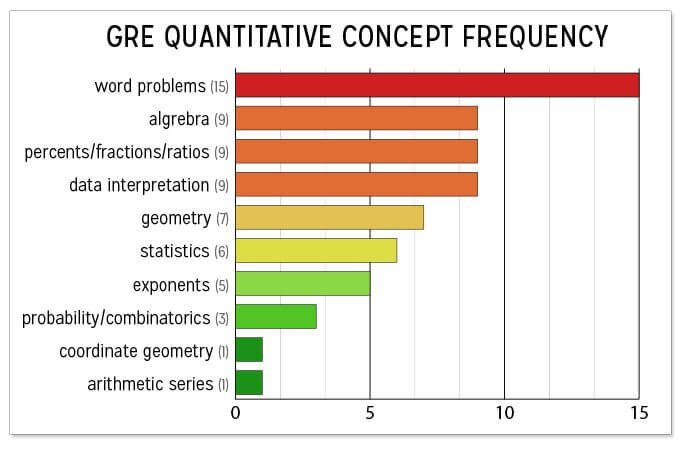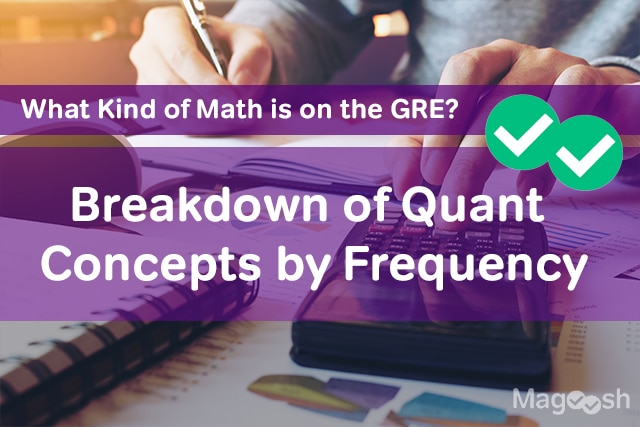The 2nd edition Official Guide has just been released. At the back of the book is a new test (GRE Practice Test 2). In general, the concept break down is not surprising, if you look at the concepts that pop up in Practice Test 1 (which is the same as the practice test in the first edition of the Official Guide).
Word problems abound. There is a fair amount of algebra. Even a few combinatorics problems rear their fearsome heads. And if you’re wondering how many statistics questions are on the GRE, a topic often given scant attention in many prep books – it can pop up in spades. Most interestingly, coordinate geometry only shows up once, and there is not a single rate problem.
The information below pertains to the 50 quantitative questions in Practice Test 2. I have lumped QC and Problem Solving questions together. I have not assigned only one category per question, but have ascribed multiple categories to the same question. For instance, a word problem can contain any number of concepts. To only call it a word problem is a vague. After all ten Word Problems on combinations is very different from ten word problems dealing with percents.
The breakdown of concepts detailed below will likely be very similar to what you see test day. That said you would probably see more than one coordinate geometry question and would probably see a rate question. And just because a concept did not show up on the test, does not mean you will not see that concept test day. Interest problems, both simple and compound, can very well show up.
What is the take away from all this? If you are weak in a certain area, say word problems that deal exclusively with adding a series of numbers, do not fret about this. You may only see one problem, if any, dealing with such a concept. On the other hand, if you are only somewhat comfortable with Statistics it is a good idea to strengthen this area, as you are far more likely to see it test day.
Word Problems (15)
Algebra (9)
Geometry (7)
Statistics (6)
Exponents (5)
Arithmetic Series (1)
Rates (0)







Leave a Reply